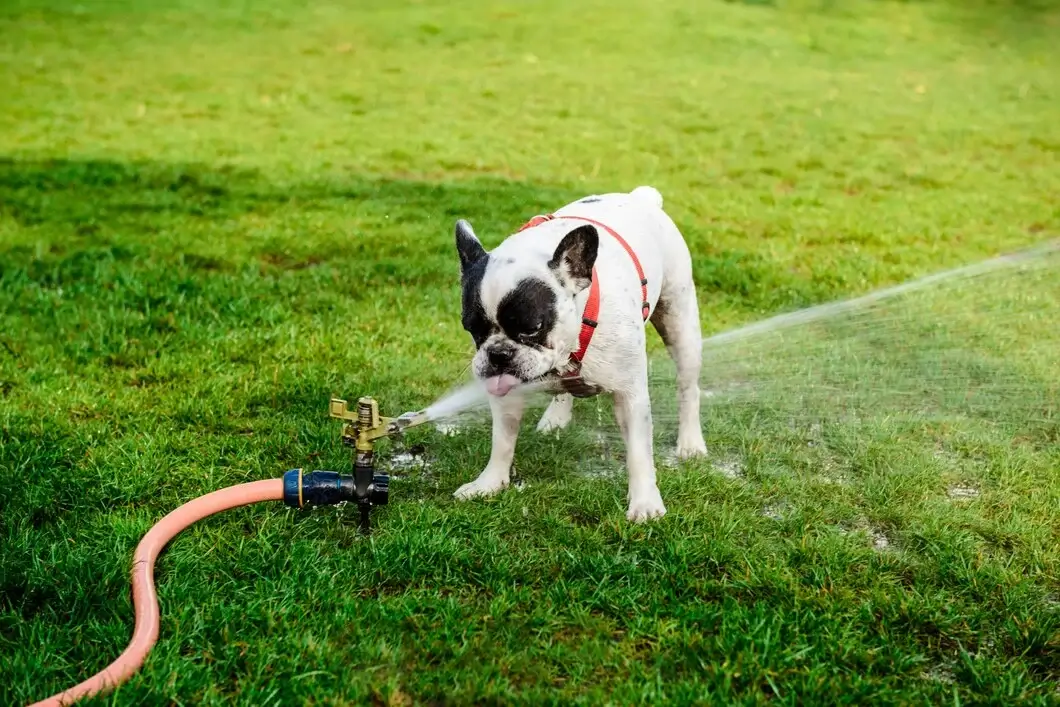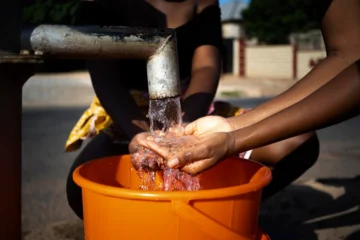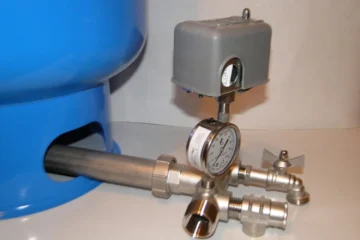Your dog can drink well water if it’s treated or filtered properly. If you drink from the well, your dog can probably drink from it too. Dogs don’t sweat much, so they keep a lot of the water they drink. But if the well water isn’t treated, it can make your pet sick. Bad water can cause problems like diarrhea, throwing up, mood changes, and in serious cases (seizures).
In this blog post, we’ll discuss common contaminants in well water that makes your dog sick, we also discuss safety recommendations to make your dog healthy,
1. Are Well Water Bad For Your Dog?
Yes, Well water usually comes from underground and is often safe for people to drink. But for dogs, it might not always be safe. Even though people might drink well water without problems, it can still have bad stuff in it.
These tiny living things, like bacteria, and parasites can get into the water from different sources. Stuff like nitrates, nitrites, and heavy metals can end up in well water, which comes from farming or the pipes in nearby houses.
To make sure well water is okay for your dog, you should test it. You can do this with a Testing kit or get help from professionals. Testing tells you if there’s anything bad in the water. Once you know what’s in the water, you can decide if it’s safe for your dog to drink.
2. Harmful Contaminants In Well Water That’s Bad For Your Dog
Well water is usually very pure, but it can pick up bad stuff because iit comes from underground resources. Some of the things it might absorb are dirt, bacteria, and heavy metals.
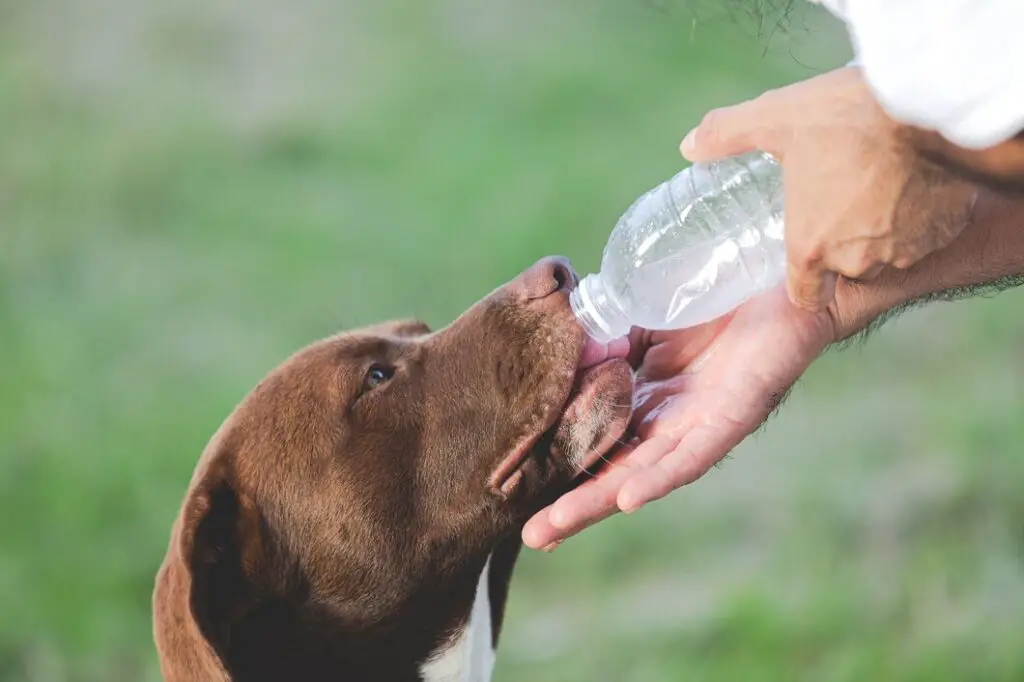
Now, let’s see how these things can affect your dog’s health:
1. Bacteria
Bacteria in well water can make your dog sick. This might show up as throwing up, spasms, or being tired.
2. Calcium
Calcium is good for bones in the right amount, but too much of it makes water hard. If dogs drink a lot of hard water, they might get more urinary tract infections.
3. Sulfur
If there’s sulfur in well water, it usually smells like rotten eggs. When dogs drink water with sulfur, they might get sick. Sulfur causes health problems for your dog like diarrhea, feeling bloated, or getting dehydrated.
Also, the bad smell might make your dog not want to drink enough water.
4. Iron
Iron is typically safe for dogs and humans, but it can tint water with an orange or brown color, which may not be appealing to your dog.
5. Nitrate
Too much nitrate in well water can make dogs sick. They might have trouble breathing, get convulsions, or have problems with their pee.
3. Make Well Water Drinkable For Your Dog
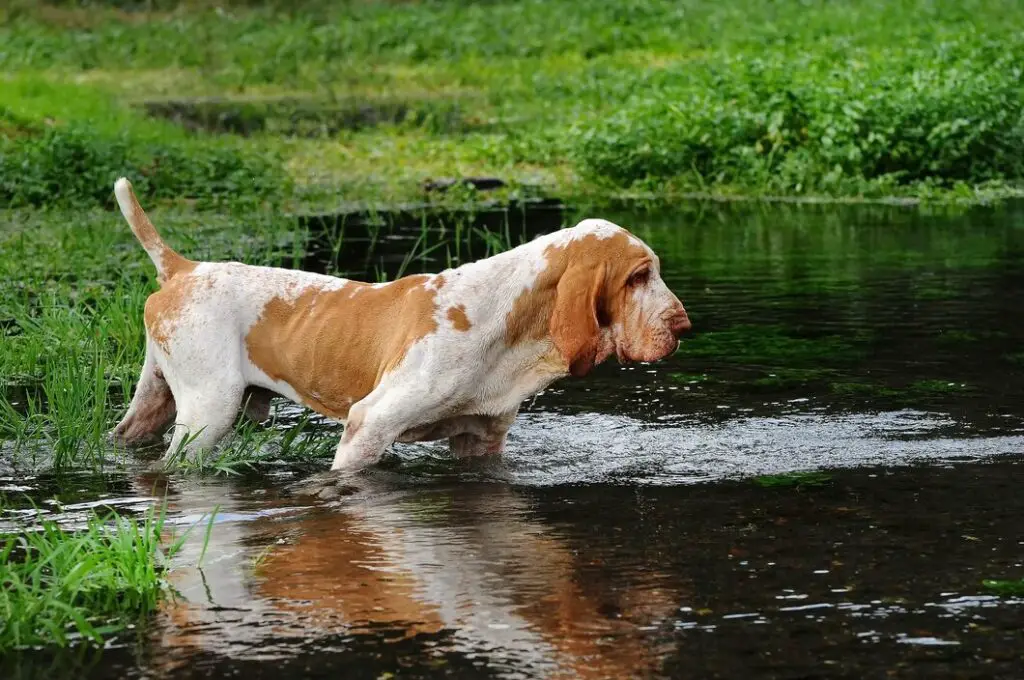
To make your well water safe for your dog, follow these simple steps:
1. Test the Well Water
Before making any changes, test your well water to identify any potential contaminants. You can purchase home water testing kits or contact a professional to conduct a thorough analysis.
2. Remove Sediment
Sediment can accumulate in well water, which may not be harmful but also affects taste and clarity. Install a high-quality sediment filter to remove debris and improve water quality.
3. Treat for Bacteria
Bacteria such as E. coli and coliform can pose a risk to your dog’s health. Consider installing a UV sterilizer or chlorination system to eliminate bacteria from the water.
4. Check for Minerals
High levels of minerals like iron, manganese, or sulfur can cause health issues for your dog and affect the taste of the water.
Use a water softener or filtration system specifically designed to remove these minerals.
5. Test pH Levels
Extremely acidic or alkaline water can be harmful to your dog’s digestive system. Check the pH levels of your well water and use pH neutralizers if needed to balance it out.
6. Keep Water Fresh
Regularly clean your dog’s water bowl and refill it with fresh water.
By following these steps, you can ensure that your well water is safe and healthy for your dog to drink, providing them with hydration.
4. Which Water Is Best For Your Dog
Pet owners care a lot about keeping their pets healthy, especially by giving them safe water to drink. Good options for dogs to drink include filtered well water, tap water, bottled water, and water from RO (reverse osmosis) systems.
Now, let’s talk about some usual water sources your dog might come across.
1. Well Water
If you live in the countryside and your home uses well water that’s safe for you, it’s probably okay for your pets too. But if you have a separate pump just for farm animals, it’s important to test the water often. Well water is a better option for your dog when it is treated with a proper filtration system.
2. Bottled Water
Most bottled water, which is made from tap water, is usually fine for Your dogs to drink. But some vets, like Locust Valley Veterinary Clinic, aren’t sure about distilled water. They worry it might not be good for pets’ pee and heart health.
3. Boiled Well Water
If you live in the countryside, well water is a good choice. It’s not bad for your dog, but if you don’t have a filter, you should boil it first to get rid of any bad stuff like germs.
Conclusion
Dogs can drink well water if it’s treated or filtered properly to get rid of any bad stuff in it. Well water might have harmful bacteria, minerals, and other things that can make dogs sick if they drink it.
Testing the water, cleaning out any dirt, treating for bacteria, checking minerals, adjusting the pH, and keeping the water fresh is important to make sure well water is safe for dogs.
Pet owners have different choices for giving their dogs safe water, like filtered well water, tap water, bottled water, or water from RO systems. Making sure well water is good quality is really important for keeping dogs healthy.
FAQs
Is well water safe for dogs to drink?
Well water can be safe for dogs to drink, but it depends on various factors such as water quality, contaminants, and minerals present. Testing the water and ensuring it meets safety standards is important.
Can dogs get sick from drinking well water?
Yes, dogs can get sick from drinking contaminated well water. Bacteria, parasites, chemicals, and other pollutants present in the water can cause gastrointestinal issues, infections, or other health problems in dogs.
How to test if well water is safe for dogs?
You can test well water for dogs by using water testing kits available at hardware stores or by contacting local health departments. These kits can detect various contaminants, minerals, and other substances that might affect your dog’s health.
What minerals are in well water that may affect dogs?
Minerals commonly found in well water, such as iron, manganese, sulfur, and calcium, can affect dogs in different ways. Excessive intake of certain minerals may lead to health problems like gastrointestinal upset or urinary issues in dogs.
Can well water cause health issues in dogs over time?
Yes, if well water contains contaminants or minerals in excess, it can cause long-term health issues in dogs. Regular testing, proper filtration, and monitoring your dog’s health are essential to prevent potential problems.


